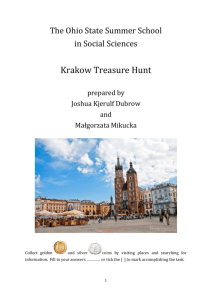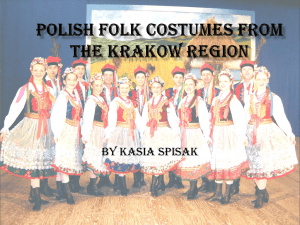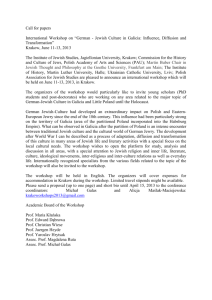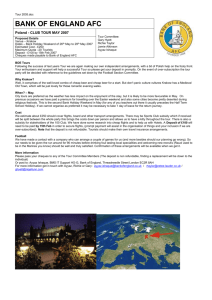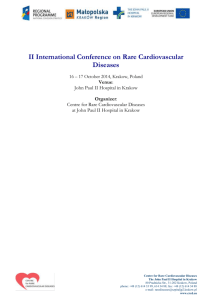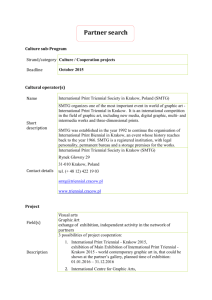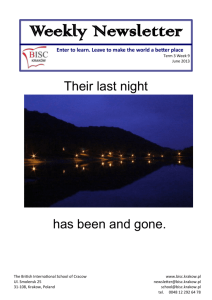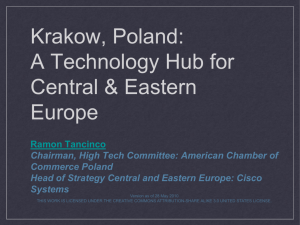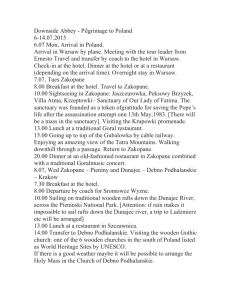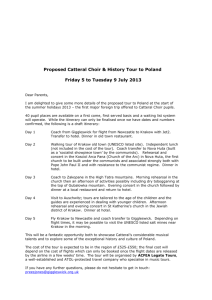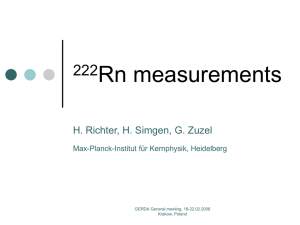Ten things to know about
advertisement
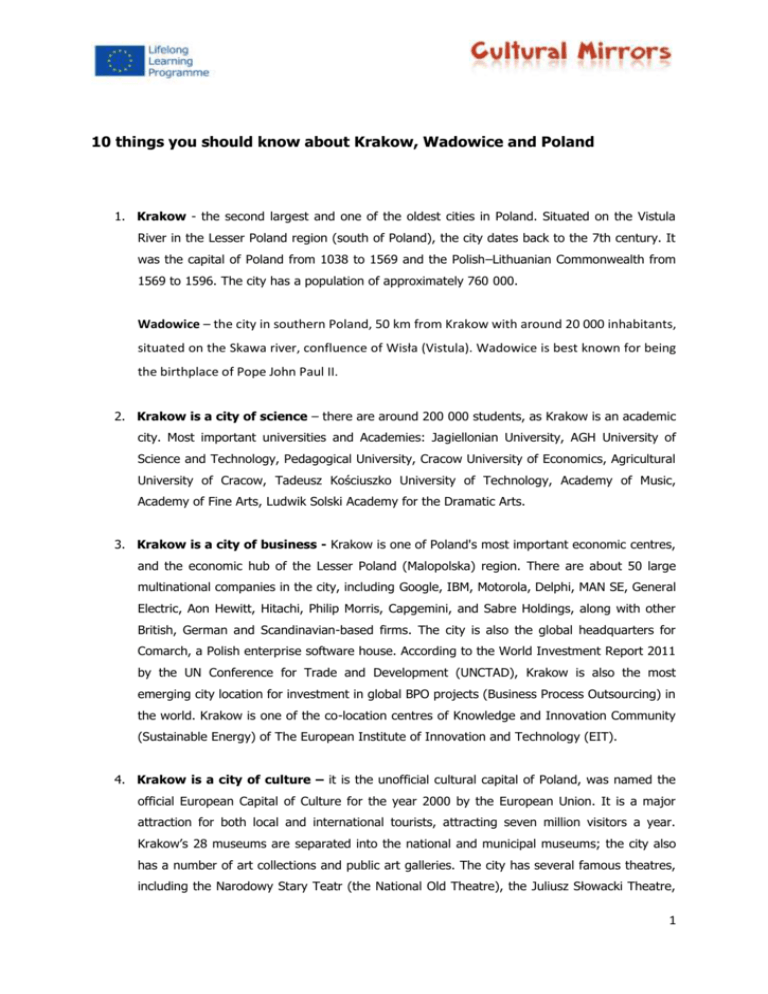
10 things you should know about Krakow, Wadowice and Poland 1. Krakow - the second largest and one of the oldest cities in Poland. Situated on the Vistula River in the Lesser Poland region (south of Poland), the city dates back to the 7th century. It was the capital of Poland from 1038 to 1569 and the Polish–Lithuanian Commonwealth from 1569 to 1596. The city has a population of approximately 760 000. Wadowice – the city in southern Poland, 50 km from Krakow with around 20 000 inhabitants, situated on the Skawa river, confluence of Wisła (Vistula). Wadowice is best known for being the birthplace of Pope John Paul II. 2. Krakow is a city of science – there are around 200 000 students, as Krakow is an academic city. Most important universities and Academies: Jagiellonian University, AGH University of Science and Technology, Pedagogical University, Cracow University of Economics, Agricultural University of Cracow, Tadeusz Kościuszko University of Technology, Academy of Music, Academy of Fine Arts, Ludwik Solski Academy for the Dramatic Arts. 3. Krakow is a city of business - Krakow is one of Poland's most important economic centres, and the economic hub of the Lesser Poland (Malopolska) region. There are about 50 large multinational companies in the city, including Google, IBM, Motorola, Delphi, MAN SE, General Electric, Aon Hewitt, Hitachi, Philip Morris, Capgemini, and Sabre Holdings, along with other British, German and Scandinavian-based firms. The city is also the global headquarters for Comarch, a Polish enterprise software house. According to the World Investment Report 2011 by the UN Conference for Trade and Development (UNCTAD), Krakow is also the most emerging city location for investment in global BPO projects (Business Process Outsourcing) in the world. Krakow is one of the co-location centres of Knowledge and Innovation Community (Sustainable Energy) of The European Institute of Innovation and Technology (EIT). 4. Krakow is a city of culture – it is the unofficial cultural capital of Poland, was named the official European Capital of Culture for the year 2000 by the European Union. It is a major attraction for both local and international tourists, attracting seven million visitors a year. Krakow’s 28 museums are separated into the national and municipal museums; the city also has a number of art collections and public art galleries. The city has several famous theatres, including the Narodowy Stary Teatr (the National Old Theatre), the Juliusz Słowacki Theatre, 1 the Bagatela Theatre, the Ludowy Theatre, and the Groteska Theatre of Puppetry, as well as the Opera Krakowska and Krakow Operetta. The city's principal concert hall and the home of the Krakow Philharmonic Orchestra is the Krakow Philharmonic built in 1931. 5. Most important and interesting historical sites in Krakow: the Old Town of Krakow with the Main Square and Cloth Hall (Sukiennice), St. Mary`s Basilica, Church of St. Peter and Paul, the Wawel Castle with the Cathedral, Jewish Quarter Kazimierz, Jagiellonian University, Barbakan, Florianska Tower. 6. Polish or almost Polish dishes worth to try: pierogi (dumplings), bigos, goulash, kogel mogel, apple pancake, the roasted cheese (Oscypek). 7. Among many events in Krakow, you can find The Jewish Culture Festival - It is one of the biggest festivals of Jewish culture in the world. Each festival is held in late June or early July and takes nine days, from Saturday to Sunday. During that time concerts, exhibitions, plays, lectures, workshops, tours, etc. are organized. The two most important concerts are: the inaugural concert on the first Sunday, and the final concert on the last Saturday of the festival. 8. You must be careful on the streets in Poland. Polish driving may be described as “anarchic”. 9. Comparing to other European countries, in Krakow and Wadowice, but also in other Polish cities, you may notice that many people, even young go to church, and most of them are Catholic. Although this situation is changing constantly, it seems that religion is still important for Polish people. 10. Visiting Krakow, every hour (day and night) you may listen the bugle call from the tower of St Mary’s Church in Krakow – played on a trumpet successively four times on the hour, by a trumpeter on the highest tower of St. Mary's Church in Krakow. Once a day at noon it is transmitted by radio to all of Poland and the world. Of course, there’s a legend behind it… Supported by: - www.wikipedia.org questionnaires “before” and “after” meeting in Poland (CM Project) 2
